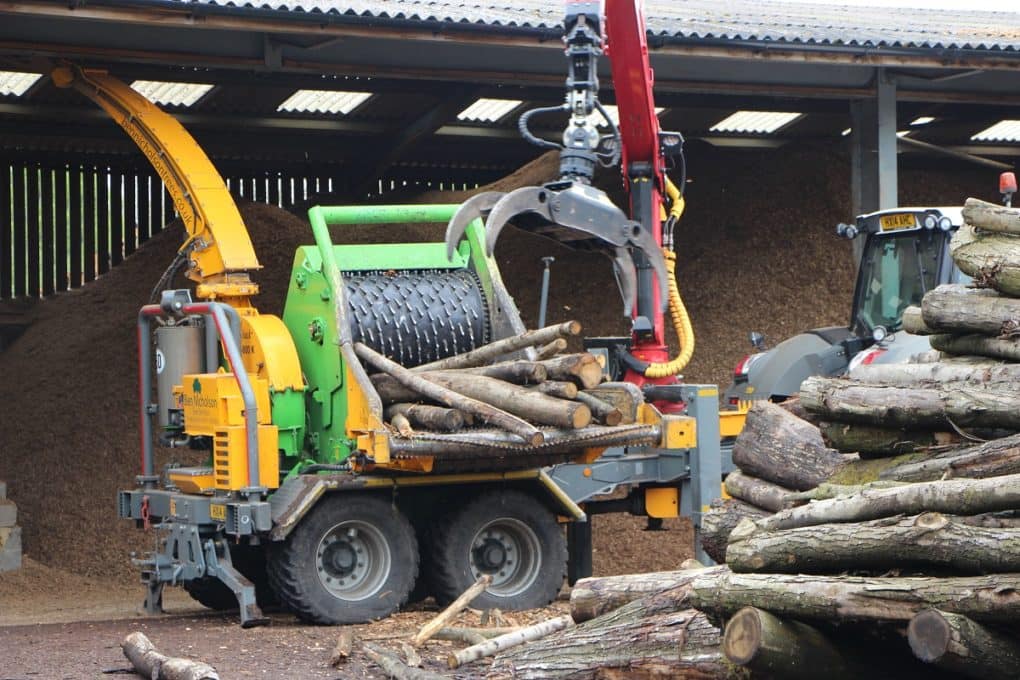

The biomass
Sustainability at Hever Castle – during May visitors can find out more.
Hever Castle & Gardens have designated the month of May as ‘sustainability month’ on the Estate and hope to encourage visitors to learn more about how the childhood home of Anne Boleyn has taken positive steps to reduce its carbon footprint.
With a biomass boiler that heats the entire Estate, solar panels to capture energy and return it to the grid, developing and protecting new eco systems in the grounds, the introduction of electric vehicles onsite, a lagoon sewerage system that’s attractive to wildlife and also the promotion of biodiversity in the meadows, sustainability at Hever Castle is very important across the Estate.
Duncan Leslie, CEO, and driving force behind the installation of the 995KW biomass boiler says: “We operate the estate on biomass fuels which are derived from carbon-based materials contained in living organisms, which can be gasified. Our innovative woodchip boiler heats the entire site thanks to timber sourced from local woodland across Kent, Sussex and Surrey plus a small percentage from our own woods.
“The biomass has been a huge success with the total cost of heating the entire site reduced considerably since its implementation.”
Solar panels were also installed on the roof of the biomass store in January 2019 and generate 43,200 kilowatts of electricity a year, saving the Estate annually and generating sustainable energy.
The gardening team have worked with the Kent Wildlife Trust over the last 10 years to establish new habitations and healthy ecosystems. The team also strives to incorporate plant diversity across the 150 acre site and choose plants that encourage pollination and support the healthy bird and insect population at Hever.
The sewerage system, implemented by former owner William Waldorf Astor in 1908, was refurbished 100 years later in 2009 and has proved over the last decade to be a beneficial place for wildlife.
Duncan Leslie says: “The sewerage system works across a series of lagoons sited across the Estate and plants seem to love the special wetland beds where over 20,000 plants have been planted. Iris, water mint, reeds and other water-loving plants are thriving in this sustainable system. Plants are particularly good at gobbling up and killing pathogens, which is why these systems are so successful. It also does not rely on any electricity and the only maintenance required is a bit of weeding to stop the nettles taking over in places.
“These sites have also encouraged a healthy bird population with reed buntings and reed warblers, animals and insects, and many amphibians setting up home here.”
More sustainability at Hever Castle is evident in a new compost site, managed by deputy head gardener Michael Holah and the catering team. Michael has collected composting materials from across the Estate (including food waste from the Restaurants) and is keen on the coffee grounds from the Moat Restaurant which help to add extra nitrogen to the compost.
Throughout the month of May, visitors who want to follow the gardening teams lead and re-use the coffee grounds will be encouraged to bring a bag with them when they visit the Gardens and to ask at the cafe for this fantastic fertiliser.
At Hever Castle Golf & Wellbeing (just a mile down the road), the sustainability measures continue with its heating and hot water also run from the biomass system.
The team have vastly reduced its use of pesticides, recycle all cardboard and glass used in service, plastic tees have been removed, building products selected and they use recycled composite decking.
Rob Peers and his greenkeeping team have also undertaken careful conservation of the woodland areas surrounding the golf holes, planted wild-flowers areas and created a wildlife friendly pond.
A bug house, Hedgehog burrow and other wildlife friendly features have also been added to the new walk through to the Castle.
Book your visit to Hever Castle & Gardens.
Within the grounds of the Hever Castle Estate, there are two opportunities for you to stay the night with us.
Hever Castle has played host to many important events and celebrations for over 600 years. In 1903 when William Waldorf Astor set about restoring Hever Castle to its former glory, he added the Astor Wing, to accommodate his family and guests, before creating a lake and the spectacular Italian Garden to house his impressive collection of ancient Greek and Roman statuary.
There are multiple places to eat & drink across the Hever Castle Estate. Select between the Castle & Gardens and Golf Club below to discover more.
Set in the mature grounds of the Hever Castle Estate, Hever Castle Golf Club is a 27 hole Kent golf course that will encourage and inspire all golf enthusiasts.
Set in the mature grounds of the Hever Castle Estate, the Wellbeing Centre consists of five smart treatment rooms.